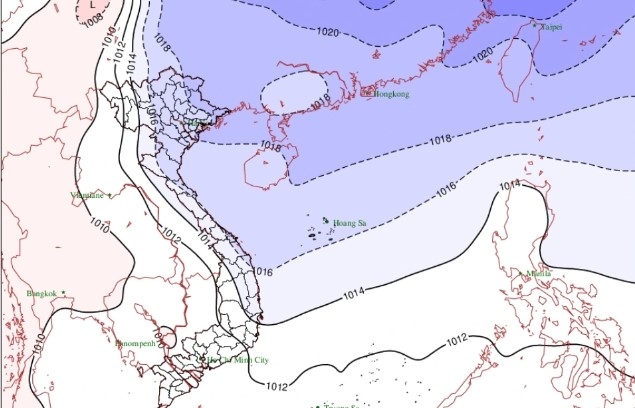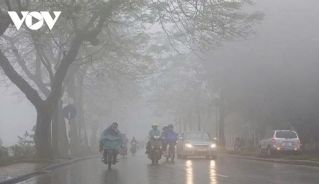Cold air intensifies, bringing rain and drizzle to northern and north-central Vietnam
VOV.VN - A cold air mass has begun affecting the mountainous areas of northeastern Vietnam as of February 16, according to the National Center for Hydro-Meteorological Forecasting.

Over the next 24 to 48 hours, this cold air will continue spreading across the rest of the northeastern region before reaching parts of the northwest and north-central Vietnam. Northeasterly winds on land will range from level 2 to 3.
In northeastern Vietnam, temperatures will drop, with some mountainous areas experiencing severe cold. The lowest temperatures during this cold spell will range from 15-18°C, while some mountainous areas may see readings below 14°C.
Hanoi will have rain and drizzle, with chilly weather. The lowest temperatures are expected to range from 17-19°C.
At sea, northeasterly winds will strengthen in the northern part of the Gulf of Tonkin, causing rough sea conditions with waves reaching 2.0-4.0 meters.
Due to the influence of weakly reinforced cold air shifting eastward, combined with an upper-level westerly jet stream, northern and north-central Vietnam will experience rain and drizzle from February 16 to the morning of February 17. The cold weather, particularly in mountainous areas, may impact livestock and crops.
Strong winds and high waves could also disrupt maritime activities.


